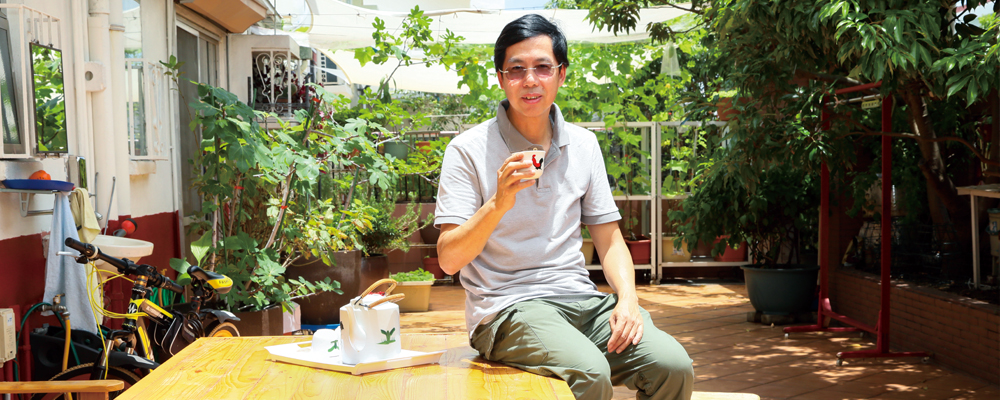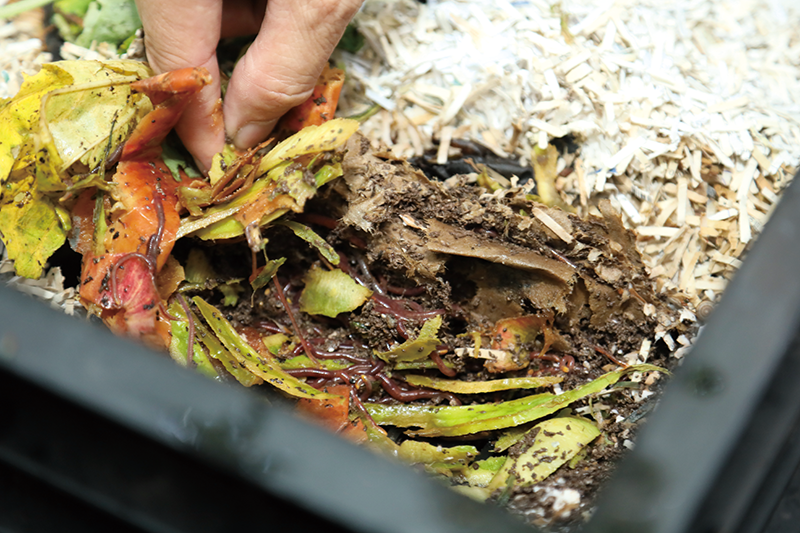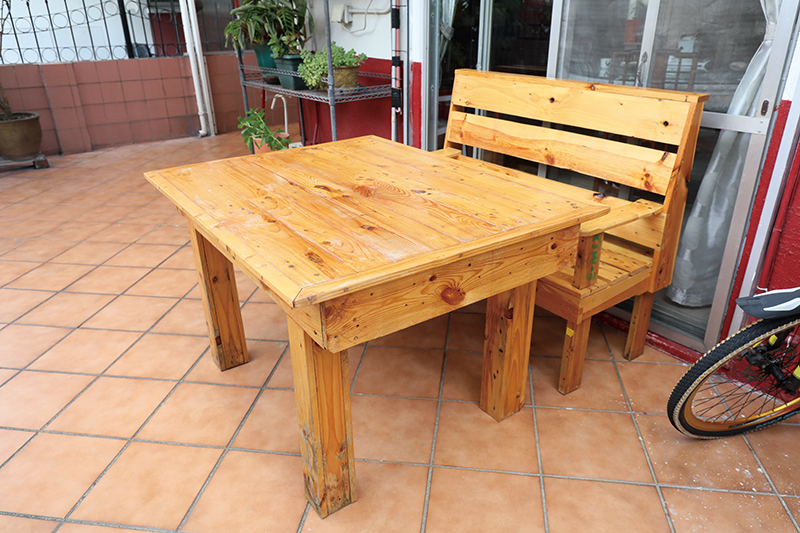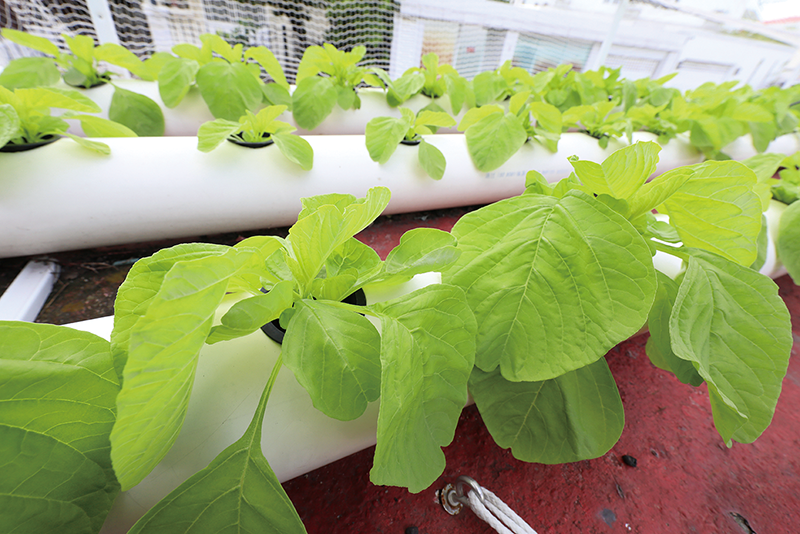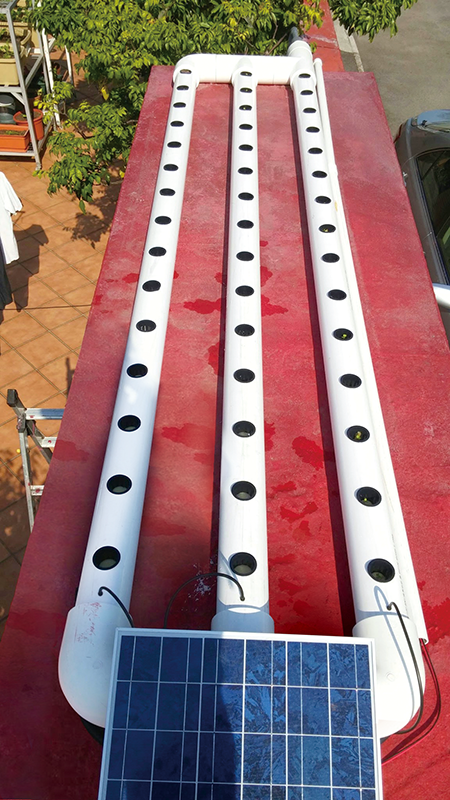
Greenery is not an exclusive luxury to countryside dwellers. Everyone can be a green guru and create their own ‘little garden’ at home. Hospital Chief Executive of Our Lady of Maryknoll Hospital (OLMH) Dr Wong Tak-cheung is an example.
On the day of visit to Dr Wong’s home, it was drizzling with occasional sunshine. The house was filled with a symphony of nature as falling rain hit buckets scattered over the backyard. Dr Wong was collecting water to irrigate dozens of plants he grows at home, including lychee, longan, mango, fig, coffee bean, bitter gourd, cherry tomato and ginger.
To nourish his plants, Dr Wong has come up with three methods to produce fertilisers at different pH values. First, food waste machine is used to turn vegetable scraps into organic odourless fertiliser. Second, enzymes are used to convert food waste with high water content like melons into fertiliser suitable for planting camellia, rhododendron and coffee. Lastly, earthworms are chosen to decompose banana skin and vegetable scraps to fertilise vegetables and orchid.
Dr Wong walks his talk on environmental protection. He practises his signature phrase – make the best use of everything – in daily life and at work. “There is only a fine line between going green and wasting resources,” he says.
Many people consider disposed wood pallets or fallen trees under typhoon trash. But to Dr Wong, a self-learner of carpentry for over 10 years, they are treasures that can be transformed to chairs and tables. “Raw wood is getting scarce today. It is best to reuse and recycle it into usable furniture.” He also applies his green belief to hospital and always takes initiative in participating in energy saving and carbon reduction campaigns, indirectly making OLMH an award winner of Carbon Reduction Certificate (given by Hong Kong Green Organisation Certification) and Gold Tier Fuel Consumption Saver by ‘Take-a-Brake’ Low Carbon Action in recent years.
Treating gardening his hideaway from work, Dr Wong focused on the yield at first, but gradually shifts his attention to the gardening process. The pleasure of watching flowers blossom, smelling the sweet scent of leaves and petals, and capturing blooming plants through his camera lens are incredibly rewarding. As he often reminds his colleagues, gardening is similar to work. There is no absolute right or wrong. To achieve one’s goals, we persevere and explore various ways but need not insist our views stubbornly. “Collaboration and communication are keys to success. We should try our best within the controllable and enjoy the process. Only by doing so will everyone gain through experience and eventually benefit patients.”
● “I have the right to choose.”
COVER STORY
● Support the teams that care for lives
● Paediatric palliative care to debut at new children’s hospital
● A visit to palliative care ward
● Characteristics of palliative care ward
FEATURE
● Green doctor turns waste into treasure
● Growing ‘pot-friendly’ fruits and vegetables
WHAT'S NEW
● Outstanding hospital projects won 5 HMA awards
HELEN HA
● HA staff survey calls for more communication and appreciation
● Web browsing made easy with improved accessibility
APP EXPRESS
● DM Care empowers diabetes patients
STAFF CORNER
● Patients express high confidence in Accident and Emergency service
● Pragmatic leaders are ready for new challenges
● Positive energy fills Psychological Care Carnival
● Teens explored unique summer hospital experience
● Empathy and patience reduce complaints

